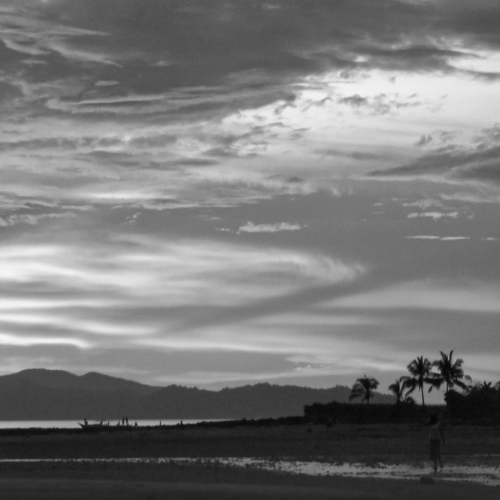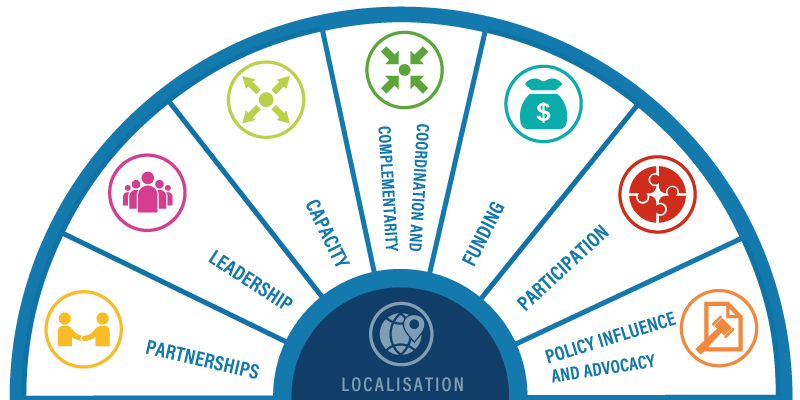Practical progress on localisation had been insufficient and inconsistent, despite widespread recognition of localisation as a principle within the humanitarian sector. This stream addresses the localisation measurement gap by exploring and testing approaches to measuring the activity and impact of localised humanitarian action.
This research has been widely consultative, socialised across the Indo-Pacific region and conducted in close partnership with the Pacific Island Association of Non-government Organisations (PIANGO) and national researchers from the Indo-Pacific.
This research stream is currently in its fourth year.

The first year of the project focused on developing and contextualising a Pacific approach to measuring localisation, building on the START Network’s seven dimensions, including regional and national consultations facilitated jointly with the PIANGO in Fiji, Vanuatu and Tonga.
Following the development of the Pacific approach, a localisation measuring framework set of tools were developed to undertake a baselining of localisation in four case study countries – Fiji, Vanuatu, Tonga and Solomon Islands. This was conducted in partnership with the NGO umbrella bodies of each country, with PIANGO and local researchers undertaking the research design and data collection in-country. The process involved wide consultation across the sector, and in-country launches held with international and national actors, including government representatives.
Together with Australian Red Cross and Humanitarian Policy Group, we collaborated on a research initiative around localisation and protection in the Pacific.
A localisation assessment of Bangladesh’s flood response in 2019 was completed in partnership with NIRAPAD and the UN Resident Coordinator’s Office. The analysis included the adaptation of the localisation measurement approach to the Bangladesh context.
With the emergence of COVID-19, we worked with PIANGO to produce a short-paper on how to support locally led disaster response in the midst of the pandemic, building on our localisation baseline work.
In the fourth year, in partnership with the Australian Red Cross Latrobe University, PIANGO and the Localisation Technical Working Group (TWG) of the Pacific Resilience Pathway (PRP), we published a paper that looked at how learnings from COVID-19 can be used to progress locally led response and development.
We are finalising a joint publication with PIANGO that explores our partnership under the localisation stream, and its implications for the how our research work can create impact.
Together with PIANGO and the national NGO networks we plan to publish a final report that will review how far localisation has progressed in the four pacific countries where we conducted the baselines, including how COVID-19 has shaped these actions.
This includes the Vanuatu Association of NGOs (VANGO), the Fiji Council of Social Services (FCOSS), the Civil Society Forum of Tonga (CSFT) and Development Services Exchange in Solomon Islands (DSE). PIANGO has been involved from the outset of the research design, and led on the implementation, and socialisation process across the Pacific.
Other key national partners for publications in this stream have been NIRAPAD, a network of researchers in Bangladesh.
As part of our work, we have also partnered with Humanitarian Policy Group, the Australian Red Cross, and the Institute for Human Security and Social Change, La Trobe University and the UN Resident Coordinator’s Office in Bangladesh.
